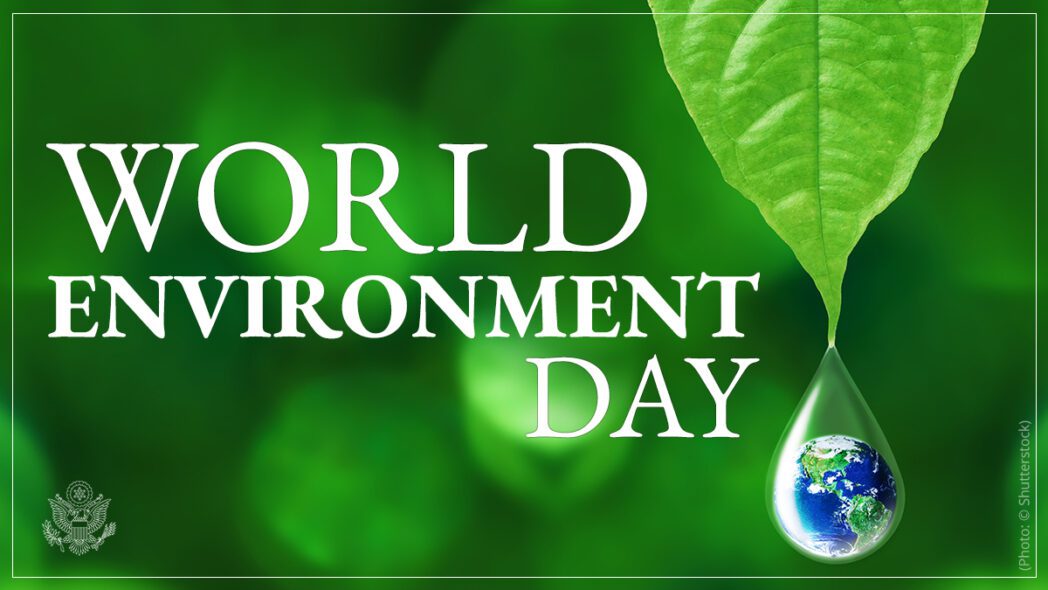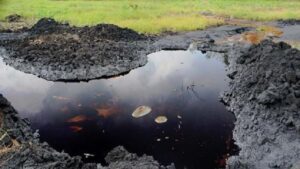


World Environment Day: A global call to restore our land, combat desertification to secure our future
By Esther Agbo
On June 5, 2024, Nigeria joined the global community in celebrating World Environment Day, focusing on the pressing issues of land restoration, halting desertification, and building drought resilience. Under the United Nations’ theme, “Our land. Our future. We are #GenerationRestoration.”
This year’s observance emphasises the urgent need to protect and rejuvenate Nigeria’s land resources for a sustainable future.
In a statement on the official website of the United Nations, Land restoration is a key pillar of the UN Decade on Ecosystem Restoration (2021-2030).
The statement read, “Land restoration is a key pillar of the UN Decade on Ecosystem Restoration (2021-2030), a rallying call for the protection and revival of ecosystems all around the world, which is critical to achieve the Sustainable Development Goals.
“This/ is why/ World Environment Day/ 2024 focuses on land restoration, halting desertification/ and building drought resilience under the slogan ‘Our land, Our future. We are #GenerationRestoration.’ We cannot turn back time, but we can grow forests, revive water sources, and bring back soils. We are the generation that can make peace with land.”
Desertification is however a growing threat in Nigeria, particularly in the northern regions, where overgrazing, deforestation, and unsustainable farming practices have turned fertile lands into barren deserts. This environmental degradation has severe implications for food security, livelihoods, and the overall well-being of communities.
According to the UN Convention to Combat Desertification, up to 40 percent of the planet’s land is degraded, directly affecting half of the world’s population. The number and duration of droughts has increased by 29 per cent since 2000, without urgent action, droughts may affect over three-quarters of the world’s population by 2050.
The Special Representative of the United Nations Secretary-General for Sustainable Energy for All, Damilola Ogunbiyi in a statement on her official X (formerly Twitter) handle said, “by 2030, drought, land degradation and desertification could force 135 million people to migrate as the climate crisis worsens.”
“That’s why on World Environment Day, we must recommit to fighting climate change by championing clean energy that will greatly reduce emissions.”
Moreover, in response to these challenges, various initiatives are underway across the country. One of the most notable is the Great Green Wall project, a pan-African effort involving 11 countries, including Nigeria. This ambitious initiative aims to restore 100 million hectares of degraded land by 2030, sequester 250 million tonnes of carbon and create a vast belt of greenery stretching from Senegal in the west to Djibouti in the east.
In Nigeria, the project is focused on reforesting degraded lands, promoting sustainable agricultural practices, and creating jobs in rural areas.
On the ground, local communities are taking action. In the arid northern regions, farmers are adopting innovative techniques such as agroforestry, which integrates trees and shrubs into crop and livestock systems. This approach not only helps restore soil fertility but also provides additional sources of income and food.
Similarly, water conservation projects are being implemented to harvest rainwater and improve irrigation efficiency, ensuring that precious water resources are used more sustainably.
Government agencies and non-governmental organisations (NGOs) are also playing crucial roles. The Nigerian government has launched several policies aimed at combating desertification and promoting land restoration. For instance, the National Agency for the Great Green Wall (NAGGW) is spearheading efforts to rehabilitate degraded lands through tree planting, community education, and capacity building.
NGOs such as the Nigeria Conservation Foundation (NCF) and the International Institute of Tropical Agriculture (IITA) are partnering with local communities to implement sustainable land management practices. These organizations provide training on techniques like crop rotation, organic farming, and the use of drought-resistant crops, which help improve soil health and increase agricultural productivity.
As Nigeria celebrates World Environment Day, it is a time for reflection and action.
The year 2024 World Environment Day’s theme “Land restoration, halting desertification and building drought resilience, under the slogan Our land, Our future. We are #GenerationRestoration” serves as a powerful reminder that the fate of our environment lies in our hands.
By restoring degraded lands and building resilience against drought, Nigeria can secure a sustainable future for its people and contribute to the global fight against climate change.
Individuals can also play their part. Simple actions such as planting trees, reducing water usage, and supporting sustainable agriculture can collectively make a significant impact. World Environment Day is not just a celebration but a call to action for all Nigerians to embrace sustainable practices and protect the environment for future generations.
As we look to the future, the vision of a greener, more resilient Nigeria is within reach. Through concerted efforts and a shared commitment to restoration, Nigeria can turn the tide on desertification and drought, ensuring that our land remains vibrant and productive for generations to come.



